The world has become a more uncertain place since US President Donald Trump issued his "America First" decree in the dark and dystopian language that so alarmed allies and intrigued adversaries. But has it become more dangerous?
Not if you look at what's actually happened.
President Trump may have stoked fears and churned up chaos with his erratic and volatile Twitter feed. But he has not torpedoed the alliances he has questioned.
He hasn't started any new wars and, by and large, he's followed the script of his predecessor, Barack Obama, for the old ones.
So, while he may have shaken things up, he hasn't blown anything up.
But has this unorthodox commander-in-chief edged us closer to some sort of global crisis?
Here are my takeaways.
Middle East victory - Islamic State
Since he became president, the Islamic State group has been all but defeated in Iraq and Syria - the IS caliphate has been eliminated and its remnants are on the run.
Yes, the group has spawned active affiliates in other parts of the world, and it's a brand that continues to inspire extremist violence. But its nerve centre has been severed, making its threat less potent.
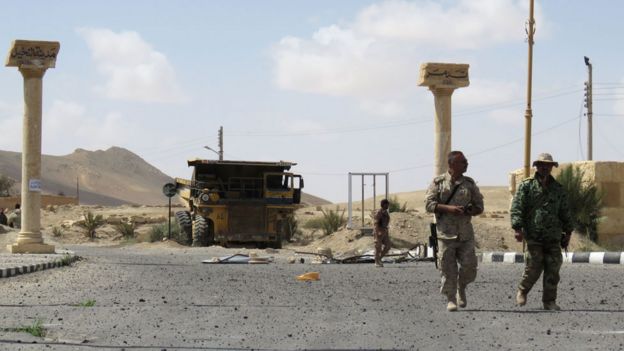 GETTY IMAGES
GETTY IMAGES
One can argue about whether Mr Trump is entitled to claim credit or whether he simply completed what Mr Obama started. He did follow Mr Obama's template - supporting local forces with bombs from the air and special operations forces on the ground - but accelerated the campaign and gave American commanders more authority to run it.
That "had a major impact", says Brett McGurk, the special envoy for the global coalition to counter the IS group, who has worked for both presidents.
Either way, it happened on Mr Trump's watch, and is arguably his biggest foreign policy success.


Middle East instability - Iran
A year ago, the Americans and five other world powers had reduced the threat of an Iranian atomic bomb with an agreement that limited its nuclear programme.
The deal is broadly seen to be working, but Mr Trump says it's deeply flawed and needs to be "fixed". He's threatening to abandon it unless the Europeans who helped negotiate it take a harder line.
Mr Trump wants to make the nuclear restrictions permanent, restrict Iran's ballistic weapons programme and counter "malign" Iranian activities not covered in the accord, such as its support for regional proxies that threaten Western allies.
These are things the Europeans agree need to be addressed, but not by enfeebling the nuclear deal which, they say, is crucial to their security.
There are three potential dangers if the agreement unravels - greater instability in the Middle East, especially given Trump's strong support for Iran's regional rival, Saudi Arabia; and a weakening of the transatlantic alliance, which has been a cornerstone of global security since World War Two.
It could also undermine the Nuclear Non-Proliferation Treaty on which the Iran deal was built, says Angela Kane, until recently the UN's top disarmament official: "We need to have this as a gold standard."


Nuclear war back on radar
North Korea's Kim Jong-un has made the world a more dangerous place by building nuclear weapons and threatening the US with them.
But Mr Trump has made the situation more dangerous by responding with fiery rhetoric, increasing the risk of accidental conflict with the reclusive and paranoid regime.
True, he swings between hurling insults and threats to expressing a willingness to talk. Right now he's doing the latter, going with the flow of the Olympic détente between the Koreas.
And the administration has built a strong coalition of international support for a higher-pressure strategy, united in its demand that Pyongyang give up its nuclear weapons.
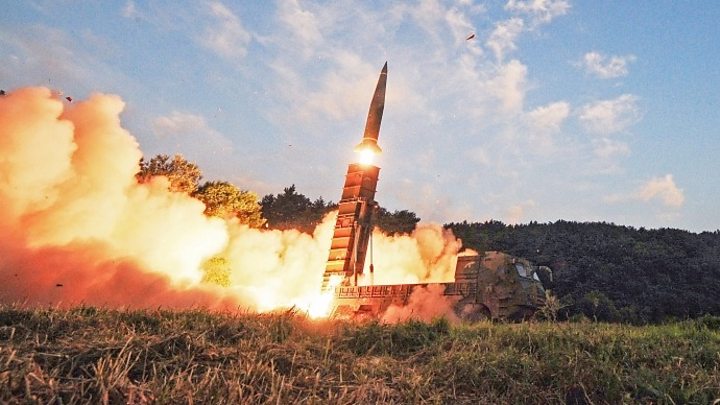
That, says John Negroponte, deputy secretary of state under George W Bush, shows Mr Trump is trying to make the world safer.
People "got all upset because he called Kim Jong-un 'Rocket Man' at the… United Nations, and that's endangering world peace? Come on!" he says. "Sticks and stones will break my bones but names will never hurt me!"
Patrick Cronin, an Asia expert at the Center for a New American Security, says Mr Trump's brinkmanship serves a purpose: "Kim thinks we don't use force and that's why President Trump is right to kind of stress, in his maniacal way, that 'you don't know that.'"
Still, this is the first time the US has threatened to attack a nuclear-armed state since the Cuban missile crisis of 1962. That was dangerous, and less… unorthodox.


Read more on Trump's first year
- Six graphics that tell story of Trump's first year
- What has actually changed under Trump?
- What Trump has said about your country

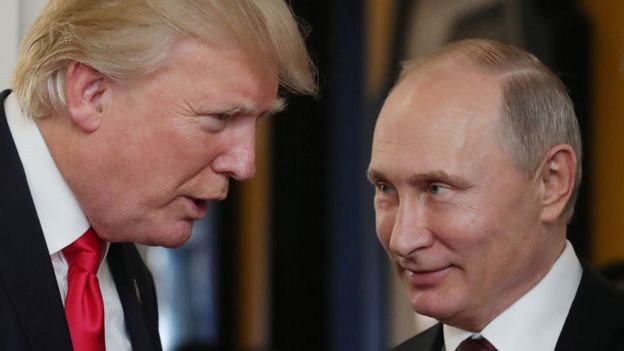 GETTY IMAGES
GETTY IMAGESReturn to Cold War
Speaking of the Cold War, the recent false alert in Hawaii that warned of an incoming missile was caused by a worker who pushed the wrong button during a shift change.
William Perry, secretary of defence under Bill Clinton, is all too familiar with false alerts - he was awakened by a call from a nightwatch officer in 1979 and thought he was "about to experience the holocaust".
Mr Perry presided over the dismantlement of nuclear weapons in the 1990s but now warns the threat is back - "because the US and Russia today are confronting each other with a hostility that's recreating the geopolitical dangers of the Cold War," he said at a recent forum.
"And because the US and Russia are rebuilding their nuclear arsenals that's recreating the military dangers of the Cold War."
This is not Mr Trump's fault, per se.
The Russian leader, Vladimir Putin, upped the ante with his interventions in Ukraine, and under Mr Obama the presidents stopped talking to each other in any meaningful way.
Mr Trump wants to talk to Mr Putin, probably too much. But he can't, because the controversy over whether his campaign colluded with Moscow to influence his election has created such a toxic climate in Washington.
Ironically the relationship is worse now than it was under Barack Obama.


Downgraded diplomacy
Donald Trump has made it clear that he prefers generals to diplomats.
He's proposed deep budget cuts to the state department and presided over the marginalisation of diplomatic influence in national security decision-making.
The militarisation of US foreign policy has been under way for some time, especially since the 9/11 attacks, but Mr Trump has accelerated it.
He doesn't seem to understand or care much for diplomacy.
When asked about unfilled positions at the state department, he famously channelled Louis XIV, telling a Fox News presenter he was the only one who mattered because "when it comes to it, that's what the policy is going to be".
Diplomacy is a bit like preventive health care - it solves problems before they become wars.
So if you weaken it, you're more likely to have wars.
And if Mr Trump wants to #MAGA [Make America Great Again], he'd do well to remember that many of the critical successes of American foreign policy have been diplomatic - think the Marshall Plan, the Egyptian-Israeli Peace Treaty.
Its military adventures less so - think Vietnam, Iraq.

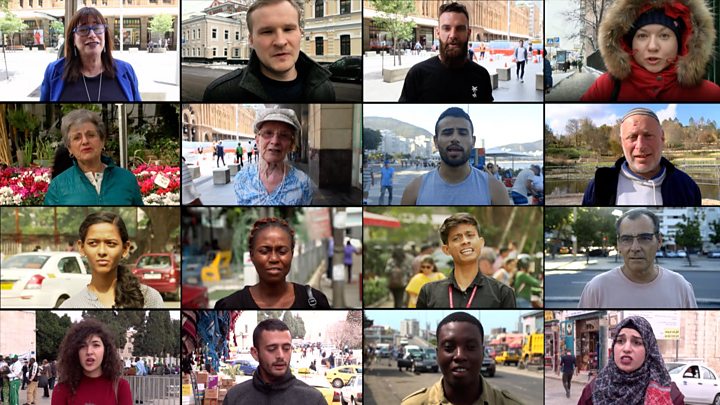

America in retreat?
Mr Trump has begun to unpick America's commitment to a network of agreements that are supposed to collectively solve the world's problems.
Withdrawing from the Paris Climate Accord has been the most consequential so far.
It's true that the process takes four years and that other factors are mitigating the effects - American states and private companies are continuing with their own clean-power plans. But the US will be doing far less to fight global warming than it might have done.
More broadly, Mr Trump's America First rhetoric seems aimed at disrupting the alliances and institutions that have kept the world peaceful since World War Two.
Or at least, he is retreating from America's traditional lead role in maintaining them.
If Mr Trump "succeeds in dismantling that order the world will be a lot more dangerous", says David Ignatius, who writes about foreign affairs for the Washington Post. But, he told me, American power has "a durability that transcends Trump and his government by tweet".
Richard Haass, of the Council on Foreign Relations, is more pessimistic. He writes in The Atlantic that no other power is capable of taking America's place if it withdraws from actively promoting international order.
"The alternative to a US-led international order is less international order."

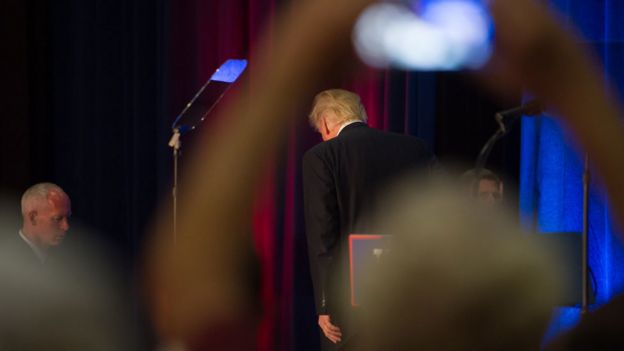 GETTY IMAGES
GETTY IMAGES
Unreliable and unpredictable
You can argue that Donald Trump is driven more by his volatile personality than his commitment to America First.
That has introduced an almost permanent element of disruption into US foreign policy, channelled by his Twitter feed and often contradicting his more stable senior officials.
Mr Trump's supporters claim the unpredictability of his tweets can be used as leverage in international dealings. Or that they should be ignored as he rarely follows through with his threats.
But it confuses allies and adversaries alike about what exactly US policy is and decreases international confidence in American leadership.
And that's not a comfortable place to be - having to live with an unpredictable White House in an unpredictable world.

No comments:
Post a Comment